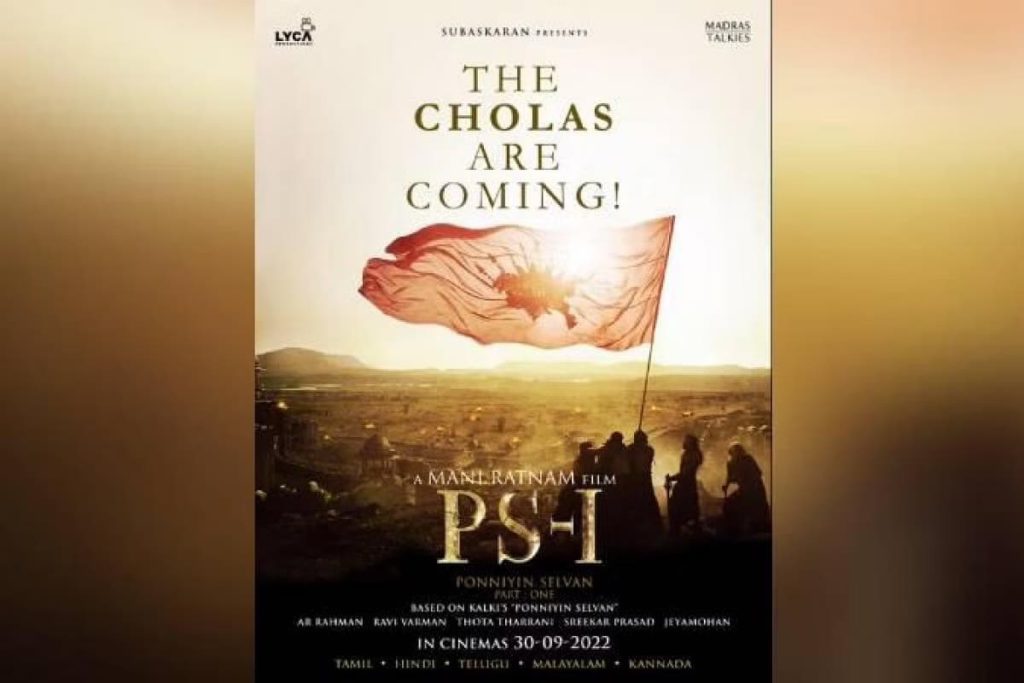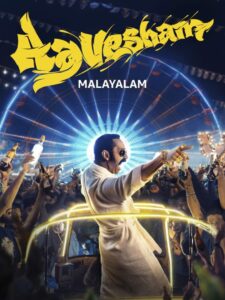One-line review: A film about the time when royal drama meant bloodshed with swords.
Director Mani Ratnam must surely have wrestled with how to make this film. Should he cater to the Tamil audiences familiar with the beloved book on the Chola dynasty, on which the film is based? Or should he make the film for audiences unfamiliar with the book, like me, who will find the plot too complex? As a fan of Tamil author Kalki’s five-volume tome, he has confidently chosen the first approach. I had to see the film twice to get the hang of the plot and its assortment of characters and a third time to enjoy it as a seasoned viewer. Interestingly the third watch was the most riveting
Mani Ratnam’s unabashed confidence in his film is infectious. Although the plot is complicated, and sometimes you give up trying to understand what’s going on, as film critic Anupama Chopra points out, it is hard to take your eyes off the screen. That is for many reasons: the breathtaking cinematography of Ravi Varman, the charming, swashbuckling cast, and A R Rahman’s pulsating background score that consistently lifts the, at times, tedious film.
Ponniyin Selvan 1 is the first part of the magnum opus about the young prince Ponniyin Selvan who goes on to become Raja Raja Chola 1, one of the greatest kings of the Chola empire and probably in Indian history. PS 1 gives us his back story, and although Ponniyin Selvan appears only towards the end, actor Jayam Ravi’s physique and charisma reassure us that he has all the makings of a great king.
The film begins with Chola prince and warrior par excellence, Ponniyin Selvan’s older brother, Aditya Karikalan (Vikram), sending his reliable buddy Vanthiya Thevan (Karthi) on a mission. His job is to inform the father, ailing king Sundara Chola (Prakash Raj), about an impending coup. He must also meet the sister, wily princess Kundavi (Trisha), who might have some ideas to thwart the coup. The mastermind behind the coup is the elder Chancellor (Sarath Kumar), aided by his much younger wife, Nandini (Aishwarya Rai), whose beauty is as legendary as the Helen of Troy. Nandini also has a personal vendetta against her former lover (?) Karikalan, who heartlessly killed her lover/husband, the old Pandyan king. The Chola kingdom is also at risk from their neighboring Rashrakutas and the Pandyan rebels. It is these multiple sources of danger that make the film confusing for the uninitiated, but it is also proof of why ruling is not child’s play.
We see the landscape, the people, and the main characters through their encounters with the messenger cum spy, Vanthiya Velan. A bumbling idiot Thirumalayappan (Jayaram), who, in reality, is a spy and ally, is always shadowing Vanthiya Velan. Their interactions give the film its much-needed levity. The film would have fallen flat without Karthi’s easy charm as Vanthiya Velan; he is the spine that holds the film together, dancing, fighting, joking, flirting, and riding his way to the other characters. Vikram is terrific as the crazed older prince who still pines for his lover Nandini; you can tell he can come apart at any time. The high-octane Chola Chola song perfectly encapsulates his character’s angst. Apparently, the director’s notes to him were to channel a lion’s spirit.
Aishwarya Rai is the film’s revelation; while her luminous beauty is no surprise, her restrained performance gives the film its gravity: she is clearly a director’s actor. Other notable performances include Jayaram’s as the Vaishnavite, Sarath Kumar’s as the infatuated husband, and Trisha’s as the cunning princess. Unfortunately, the other two female leads, boatwoman Poonguzhali (Aishwarya Laksmi) and Princess Vanathi (Shobita Dhulipala), both in love with Ponniyin Selvan, do not get enough screen time. They also look more like current-day skinny models walking the ramp than like earthy women from a thousand years ago.
The movie’s strength is that it uses VFX strictly to serve the story and doesn’t go overboard with it because it can. The story is king motto could be why we only see part of the haunting melody “Alaikadal” while the other playful number, “Sol,” is cut entirely. These songs could have offered the much-needed respite to some overly long battle and intrigue scenes. You almost feel cheated not to be able to see these songs on the big screen, especially because of the superb choreography of the existing songs. ARR’s songs and background score are an integral part of PS-1. When the title song Ponni Nadhi begins, we know we are in for a glorious ride.
Mani Ratnam’s film is a culmination of his three-decades-long dream to make it. He says, on hindsight, this was the right time to finally make it because audiences are now willing to watch two-part films, and the advances in technology allow you to fill in the gaps. The hard shooting schedule has been the topic of much discussion and mirth (the cast often would go hungry because of the long shoots; despite their intensive riding lessons in Chennai, the lead cast had to relearn those skills in Thailand with new horses with a different style of riding; the extensive prayers behind the scenes when filming dangerous scenes, etc.). Mani Ratnam’s friend equates him to a tiger in a cage in social situations but to a tiger in the jungle while shooting. I think only the Tamil version of the film should have been released; one must hear these great warriors speak in their native tongue. Indian audiences are now used to watching foreign films with subtitles and would have watched the Tamil version.
Ponniyin Selvan 1 is an epic that, like its characters, stands regally, telling you to take it or leave it.


